The US is pushing for overhauling the UN Security Council and is developing a proposal to add six permanent members who will not have veto rights, according to a media report.
"The evolving US proposal, which is expected to include the addition of up to six permanent seats to the Council without granting those nations veto power," The Washington Post reported on Monday.
India has insisted that a permanent seat should come with veto powers but offered to forgo veto rights during a transitional process.
Withholding veto rights for new permanent members "ensures that if reform is achieved, it would grant additional countries the clout of permanent council seats without diluting current members' veto power, the Post said.
The reform initiative would "reflects (President Joe) Biden's desire to acknowledge the developing world's growing clout and to address widespread frustration with the council's current members and their inability to stanch global conflicts, particularly the war in Ukraine," the newspaper said.
The US initiative comes as the 54 African countries -- the largest group in the UN and whose continent has the most Council-mandated peacekeeping operations -- have intensified their demands for permanent seats at the Council citing the historic injustice done to them when most of them were under the colonial yoke in 1945 when the UN was founded.
They demand two permanent seats for the group.
Biden said at the General Assembly last September that "to ensure that the Council remains credible and effective" the US "supports increasing the number of both permanent and non-permanent representatives".
In the speech, Biden said that the US supports permanent seats for Latin America and Africa without mentioning any country.
The joint statement by Biden and Prime Minister Narendra Modi during his visit to Washington in 2021 reiterated US support for India's claim for a permanent seat in a continuation of the positions of former Presidents Barack Obama and Donald Trump.
US Permanent Representative Linda Thomas-Greenfield said before her speech that at the Assembly session Biden, Secretary of State Antony Blinken, and she "plan to consult broadly on our individual and collective responsibilities under the UN Charter, including critical questions around reform of the Security Council and other UN organs".
"We should forge consensus around sensible and credible proposals to expand the Security Council's membership," she added.
The Post said that Thomas-Greenfield is consulting with diplomats from the organisation's 193 member states to solicit feedback about a potential expansion of the powerful council ahead of world leaders' annual gathering in New York in September.
Quoting an unnamed senior official, the Post said that she is trying to "forge some consensus on a sensible, credible proposal that could actually succeed and achieve reform".
The reform process in the Assembly known as Intergovernmental Negotiations (IGN) has been trapped in a morass of procedural wrangling and it ended its work for the current session without any progress and kicked it down to the next session that starts in September -- as it has done for over a decade.
The Biden administration supports Germany and Japan in addition to India for permanent seats, and also as yet undetermined representatives of Latin American and African nations.
France and Britain also support permanent seats for the three countries and for Brazil, while Russia backs India publicly but not the others.
China has been silent on additional permanent members while offering vague support for reforms and will be the main roadblock to reforms.
The reform which would amend the UN Charter would ultimately need the approval of all the five permanent members of the Council as well as the votes of 128 nations of the 193 UN members to make up the required two-thirds majority in the Assembly.
The Post noted that Council reform and the Biden initiative face an uphill task.
"Biden is pushing for reform despite established powers' reluctance to cede their traditional sway and although Washington faces acute challenges in forging any consensus in an increasingly fractured world."
"The stakes are high as his administration seeks to ensure that the UN remains a central tool for preventing wars, even as doubt grows about its ability to do so," it added.
One of the hurdles to reforms is the manoeuvres by a small group of countries known as Uniting for Consensus that is led by Italy and includes Pakistan.
The members oppose individual countries because of their rivalries and/or at the behest of nations like China that they are beholden to.
Pakistan's Permanent Representative Munir Akram, whose country is opposed to India, told the Post, "This is undemocratic; it is unequal; it is contrary to the principle of sovereign equality of states which is part of the charter."
Three of the five permanent seats are held by Western countries and adding to them could dilute their dominance as only Germany and Japan would be in their ranks while India and other developing countries would act more independently.
The Post quoted a UN diplomat referring to this: "Any reform of the Security Council may well reduce the weight of the West. So this is a reality. And the question is, are we really pushing for that now? Is it just nice rhetoric that we want to do this, or are we really serious when we say we want to do it now?"

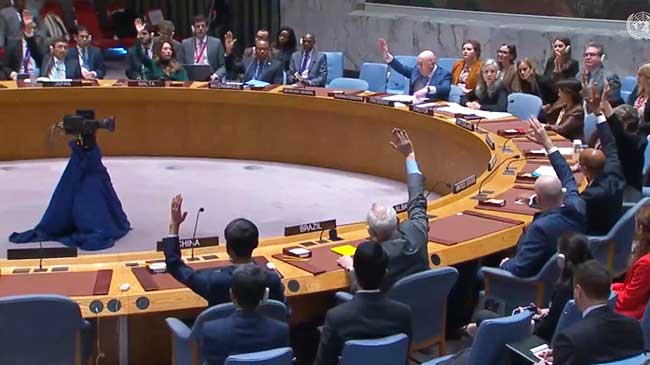
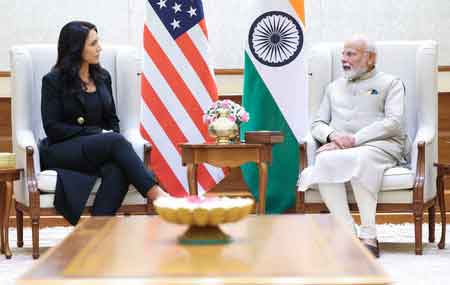
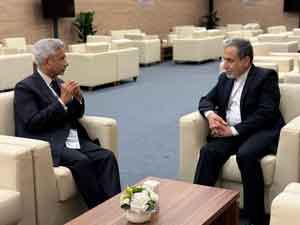
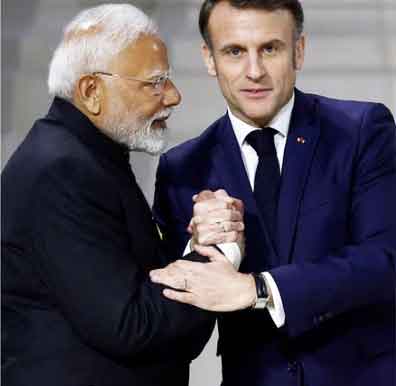
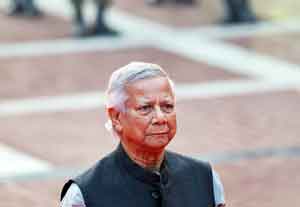


Tripura CM Saha holds key meeting with BJP, IPFT and TMP leaders
Tripura Chief Minister Manik Saha on Friday held an "important" meeting between the leaders of ruling BJP and its two allies – Tipra Motha Party (TMP) and Indigenous People's Front of Tripura (IPFT) and discussed various political and developmental issue, sources said.
HM Amit Shah's meeting sends a clear message: Not a drop of water to Pakistan
A high-level meeting was held on Friday at the residence of Union Home Minister Amit Shah regarding the suspension of the Indus Waters Treaty. The 45-minute meeting between the Home Minister and Union Jal Shakti Minister C.R. Patil focused on exploring ways to halt the flow of water to Pakistan.
Tripura: TMP chief urges Centre to adopt 'stronger policy' against B'desh
Ruling BJP’s ally Tipra Motha Party (TMP) founder-chief Pradyot Bikram Manikya Debbarma on Friday urged the Central government to adopt a stronger policy stance towards Bangladesh, accusing the neighbouring country of encouraging fundamentalist forces targeting Hindu minorities.
Pahalgam attack: More countries express solidarity with India, offer support in fight against terrorism
Ambassadors of Israel, Egypt, Argentina, and Nepal met External Affairs Minister (EAM) S. Jaishankar in New Delhi on Friday, expressing solidarity with India in its fight against terrorism following the heinous terror attack in Pahalgam.
Tripura CM directs SPs and DMs to remain vigilant about Pakistani nationals
Tripura Chief Minister Manik Saha on Friday directed the Superintendents of Police (SPs) of all eight districts to regularly share necessary inputs with the Chief Minister’s Secretariat regarding the presence of any Pakistani nationals in the state, officials said.
US supports India's 'hunt' for those behind 'horrific Islamist terrorist attack' in Pahalgam, says Gabbard
Tulsi Gabbard, Director of National Intelligence (DNI), on Friday said that the United States supports India's "hunt" for the perpetrators of the "horrific Islamist terrorist attack" in Pahalgam that took place earlier this week.
Tehran stands ready to 'forge greater understanding' between India and Pakistan: Iran FM Araghchi
Citing its good relations with both India and Pakistan, Iran on Friday said that it stands ready to "forge greater understanding" between New Delhi and Islamabad following the Pahalgam terror attack, earlier this week.
PM Modi's action will act as deterrent against any fresh attempts to harm India: Tripura CM
Tripura Chief Minister Manik Saha on Friday denounced the Pahalgam terror attack, asserting his staunch belief that Prime Minister Narendra Modi's decisive action will act as a strong deterrent against any future attempts by terrorists to harm India.